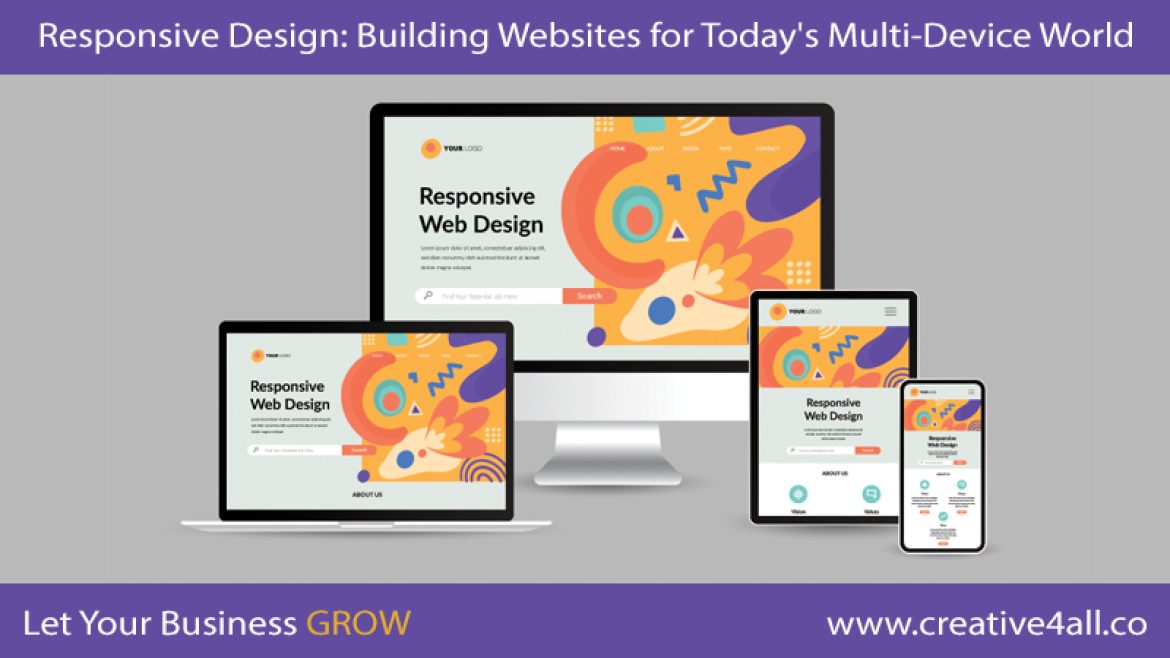
In an era where smartphones, tablets, laptops, and desktops are all part of daily life, ensuring that your website is accessible and user-friendly across various devices is crucial. Responsive design has emerged as a solution to this challenge, allowing websites to adapt seamlessly to different screen sizes and orientations. In this article, we’ll explore what responsive design is, how it works, and why it’s essential for modern web development.
What is Responsive Design?
Responsive design is an approach to web development that enables a website to adjust its layout and content dynamically based on the screen size, orientation, and platform of the device being used to access it. Rather than creating separate versions of a website for different devices, responsive design allows for a single website that can provide an optimal viewing experience across a wide range of devices, from smartphones and tablets to desktop computers.
How Does Responsive Design Work?
Responsive design relies on a combination of flexible grids, media queries, and fluid layouts to ensure that a website’s design and content adapt fluidly to different screen sizes and resolutions. Here’s how it works:
1. Flexible Grids: Responsive websites use fluid grids that automatically adjust the size of page elements relative to the screen size. This allows for a more dynamic and flexible layout that can accommodate various screen sizes without sacrificing readability or usability.
2. Media Queries: Media queries are CSS rules that allow developers to apply different styles to a webpage based on factors such as screen width, height, and orientation. By using media queries, developers can create responsive designs that adapt to different devices and viewport sizes.
3. Fluid Layouts: Responsive websites employ fluid layouts that use percentages instead of fixed pixel values for sizing page elements. This ensures that page elements resize proportionally based on the size of the viewport, allowing for a consistent user experience across devices.
Why is Responsive Design Important?
1. Improved User Experience: Responsive design ensures that users can access and navigate your website easily, regardless of the device they’re using. By providing a seamless and intuitive user experience, responsive websites can increase engagement, reduce bounce rates, and improve overall satisfaction.
2. Better SEO Performance: Responsive design is favored by search engines like Google, as it allows for a single URL and consistent HTML across all devices. This makes it easier for search engines to crawl and index content, resulting in better visibility and rankings in search engine results pages (SERPs).
3. Cost-Effectiveness: Rather than maintaining separate websites for desktop and mobile users, responsive design allows for a single website that serves all users. This reduces development and maintenance costs, as well as the need for duplicate content and Search Engine Optimization ( SEO ) efforts.
4. Future-Proofing: With the proliferation of new devices and screen sizes, responsive design ensures that your website remains accessible and functional regardless of technological advancements. By embracing responsive design, you future-proof your website and ensure its relevance in an ever-evolving digital landscape.
Conclusion
Responsive design is a fundamental aspect of modern web development, allowing websites to adapt seamlessly to the diverse array of devices used to access them. By employing flexible grids, media queries, and fluid layouts, responsive design ensures that websites provide an optimal viewing experience across smartphones, tablets, laptops, and desktops. With its emphasis on user experience, Search Engine Optimization ( SEO ) performance, cost-effectiveness, and future-proofing, responsive design is essential for building websites that meet the needs and expectations of today’s multi-device world.
If you need any help to get a new responsive website design, our expert team in Creative 4 All is always ready to assist you. We are ready to help you at any time. Just contact us!




